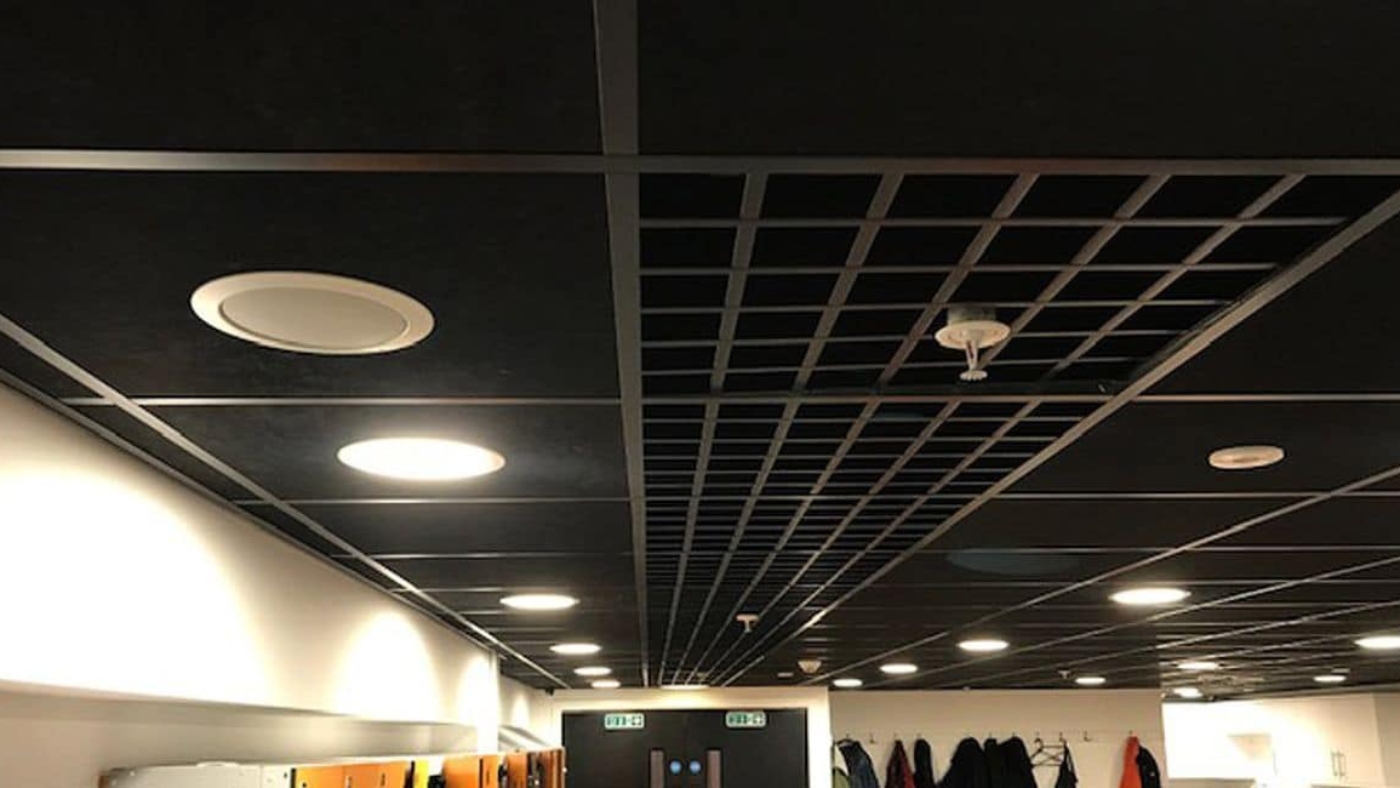What are Commercial Ceiling Tiles Made of?
Have you ever glanced up at a suspended ceiling and wondered what exactly those tiles are made of? Perhaps you’ve marvelled at their uniformity, or pondered their ability to dampen sound. Commercial ceiling tiles may seem like an unassuming feature of the built environment, but they are actually a complex and multi-functional material that plays a crucial role in shaping our experience of interior spaces.
In this blog, we explore the various substances used in the production of ceiling tiles, including historical usage, advantages associated with contemporary tile materials, and recent advancements in material technology.
History of Ceiling Tile Materials
In ancient times, ceilings were often adorned with wood, stone, and mud. These natural materials provided insulation and added decorative flair to architectural spaces but had drawbacks in terms of weight and maintenance.
As modern industrialisation took hold, metal and plaster gained popularity for their durability and mould resistance. Another widely-used material during the mid-20th century was asbestos, which unfortunately brought about severe health concerns due to its carcinogenic properties. Asbestos became widely recognised as a hazard, leading to its ban in the UK in 1999 due to its link to respiratory diseases such as mesothelioma.
The shift away from asbestos marked a turning point in the industry, prompting manufacturers to seek alternatives that prioritise safety without sacrificing functionality or aesthetics.
Common Materials Used in Commercial Ceiling Tiles
When it comes to modern commercial ceiling tiles, there are several common materials that are widely used, each with its own unique set of benefits.
Gypsum plasterboard, for instance, is a popular choice due to its fire-resistant properties and ease of installation. Its versatility allows for different finishes and designs, making it an attractive option for architects and designers looking to add aesthetic appeal.
Stone wool offers excellent acoustic insulation and is known for its durability and moisture resistance, making it suitable for areas prone to humidity or high levels of noise.
Mineral fibre is another popular choice due to its sound-absorbing capabilities and fire-resistant nature. It’s often chosen for its ability to create a comfortable acoustic environment in settings such as offices or conference rooms.
Insulated fibreglass is also frequently utilised due to its lightweight nature and energy-efficient properties. It provides thermal insulation while also offering sound absorption, making it a versatile material for maintaining comfort in various types of commercial spaces.
Innovations in Commercial Ceiling Tile Materials
The use of innovative materials has seen a recent surge, especially following the tragic Grenfell fire incident. Gypsum plasterboard is gaining popularity due to its fire resistance and sound insulation properties, making it a top choice for commercial spaces. Additionally, stone wool and mineral fibre options have been embraced for their non-combustible nature and excellent acoustic performance. They provide a safe and durable solution for projects seeking to enhance both safety and comfort.
Insulated fibreglass has also emerged as an innovative material, offering superior thermal insulation while being lightweight and easy to install. It’s becoming increasingly important for businesses to consider the environmental impact of their material choices, leading to a growing interest in sustainable options. As the industry moves toward more environmentally friendly practices, eco-conscious materials such as recycled glass or bio-based ingredients are being integrated into production.
Selecting the best ceiling tiles for your commercial space
When choosing ceiling tiles for your commercial space, it’s essential to consider factors such as acoustics, fire resistance, moisture resistance, and durability. By carefully selecting the right type of material, you can enhance the overall look and functionality of your space. If you’re in need of high-quality ceiling tiles, be sure to explore our range and order online for fast UK delivery. Alternatively, feel free to reach out to us for a suspended ceiling installation quote tailored to your specific needs.

 Cart is empty
Cart is empty 